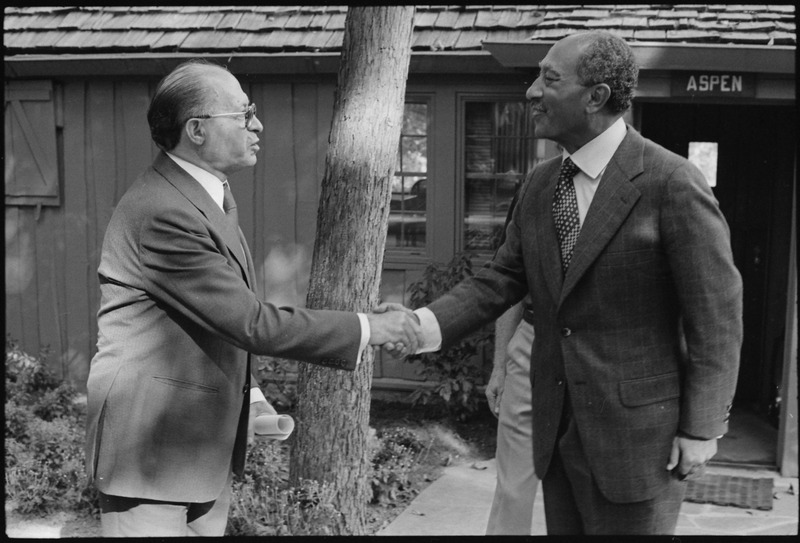The peace treaty was signed on 26 March 1979 by Israeli Prime Minister Menachem Begin and Egyptian President Anwar el-Sadat, with the mediation of then-US president Jimmy Carter. Known at the time as the Egyptian-Israeli Peace Treaty, it was a historic milestone that sought to officially end decades of hostilities between the two countries.
In this treaty, which at the time gave the world some hope of peace after the end of the Vietnam War and the end of Portuguese colonialism in Angola and Mozambique, both countries agreed to refrain from war or the threat of war between them, mutual recognition as sovereign states, Israeli withdrawal from Sinai and the establishment of full diplomatic relations.
The text also included security and border measures in border areas and agreed to promote economic, scientific, technological, and cultural cooperation between the two countries.
What happened after
Following the treaty, Egypt and Israel opened their respective embassies in Cairo and Tel Aviv and appointed ambassadors. Israel completed its withdrawal from Sinai in 1982, including the evacuation of Israeli settlements in the peninsula, a withdrawal that was later threatened by the advance of new Hebrew settlements in the area.
The Egyptian president paid for this rapprochement with his life. On 6 October 1981, he was assassinated by a group of Islamist militants who opposed his policy of peace with Israel and his regime in general.
Over the years, relations between Israel and Egypt have been strained on several occasions. One of the main reasons for the deterioration in relations following the peace agreement is the lack of a solution to the demand for full sovereignty for the Palestinian people, a conflict that has now been greatly exacerbated by the massacre of the people of Gaza.
Egypt has sought to be a key mediator in peace efforts between Israel and the Palestinians, and the lack of significant progress in the peace process has strained bilateral relations. On the other hand, there are sectors in Egypt that are opposed to normalizing relations with Israel, especially among radicalized groups that do not recognize the neighboring nation as anything other than an intruder and an invader.
It is also important to consider the political instability in the region, due to ongoing attempts at external interference and internal power struggles within and between countries in the region.
The turbulence of the Arab Spring has failed to consolidate a genuine democratic opening, despite promising beginnings. Egypt has been ruled for ten years by an ex-military man, and Israel by a far-right government that is today bombing and starving the people of Gaza with the clear aim of expelling them from the territory.
In the face of this macabre example of genocide and ethnic cleansing, the celebration of an old peace agreement is nothing short of scandalous.
However, the Egyptian-Israeli peace treaty cannot be considered a failure in itself, as it has avoided direct military confrontation between the two countries since it was signed in 1979.
Beyond the immediate implementation of the ceasefire in Gaza, which was endorsed by the UN resolution with 14 votes in favor – with only the United States abstaining – it is clear that a binding peace conference for the entire region must be convened as soon as possible.
This effort, which should lead, among other things, to the full international recognition of a Palestinian state, will only become a reality if the peoples of the region increase their effective power of self-determination and succeed, at last, and perhaps for the first time, in realizing their deep yearning for peace and social progress.










